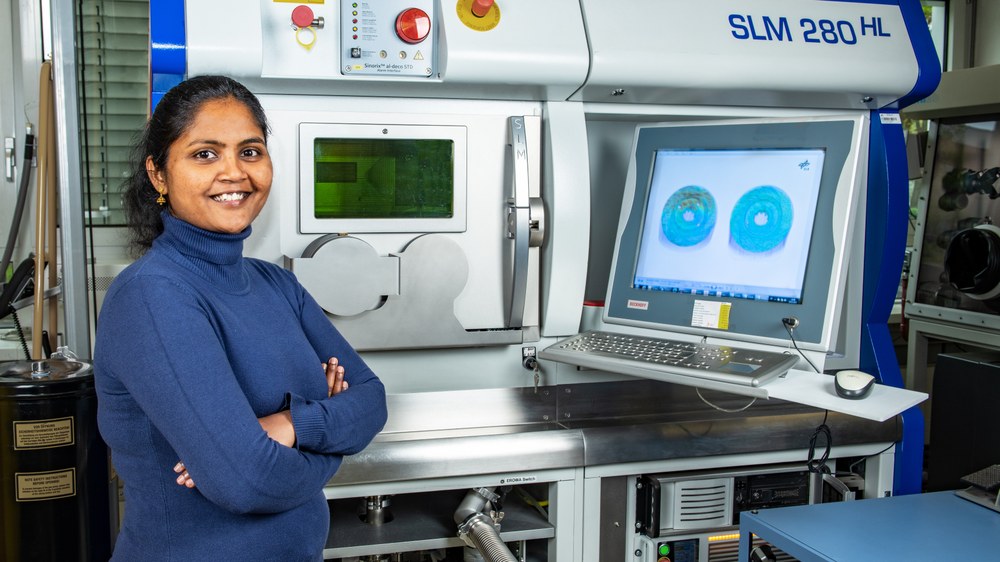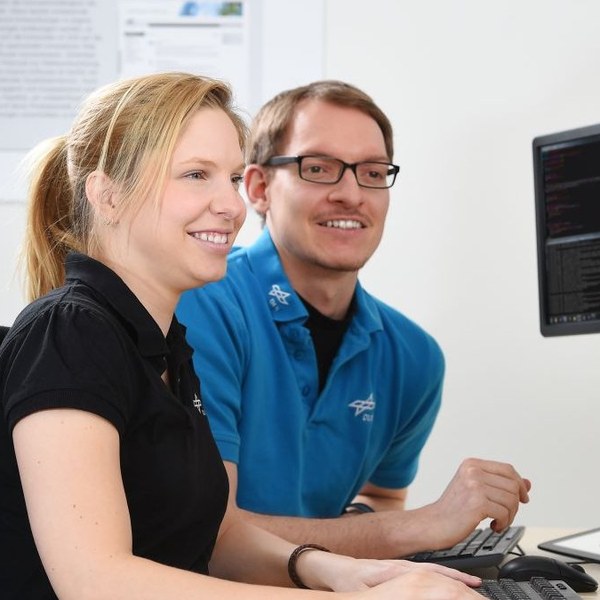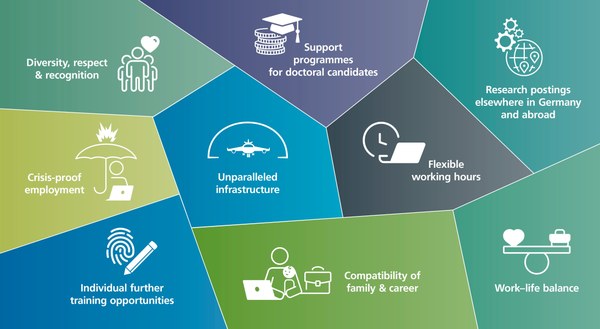Prasanna Ponnusamy
Field of study: Materials science
Now: Institute of Software Technology (before that: Institute of Materials Research)
Prasanna Ponnusamy studied materials science and first came to the Institute of Materials Research as an intern and then wrote her doctoral thesis here. She now works as a postdoc at the Institute of Software Technology in Cologne.
In this interview, she talks about her projects and working in international teams.
Prasanna, what do you look forward to when coming to work in the morning?
Prasanna: A lot of learning. I like to think of new ideas, learn new things and implement them and I see each morning as an opportunity to do so.
What are you researching or working on?
Prasanna: I am currently working on applying an efficient and fast adaptive mesh refinement code (called t8code): parallel algorithms and data structures for tree-based AMR with arbitrary element shapes for simulating 3D printing process, specifically Selective Laser Melting (SLM) process. SLM is being used at the Institute of Materials Research (where I previously worked for my PhD on thermoelectric materials) to 3D print rocket thrusters intended for green propellants. This work involves understanding of C/C++, parallel computing, material science, numerical solution methods and meshing algorithms amidst other related topics.
Where and how is your work being used?
Prasanna: The idea behind ‘Green Advanced Satellite and Rocket Engine systems for European access to space (GreenSTaRS)’ project as the name implies is to make efficient space systems for the future.
"Our focus here is especially on optimizing the additive manufacturing of copper thrusters for the use of green propellants, by understanding the 3D printing process through simulations"
Our focus here is especially on optimizing the additive manufacturing of copper thrusters for the use of green propellants, by understanding the 3D printing process through simulations. Since additive manufacturing involves materials at different phases in the process: metal powder, liquid melt, solidified part, simulating the process is not straightforward. Adaptive mesh refinement comes very much in handy here, focusing only on the finer meshing of important areas, thereby speeding up the entire simulation process.
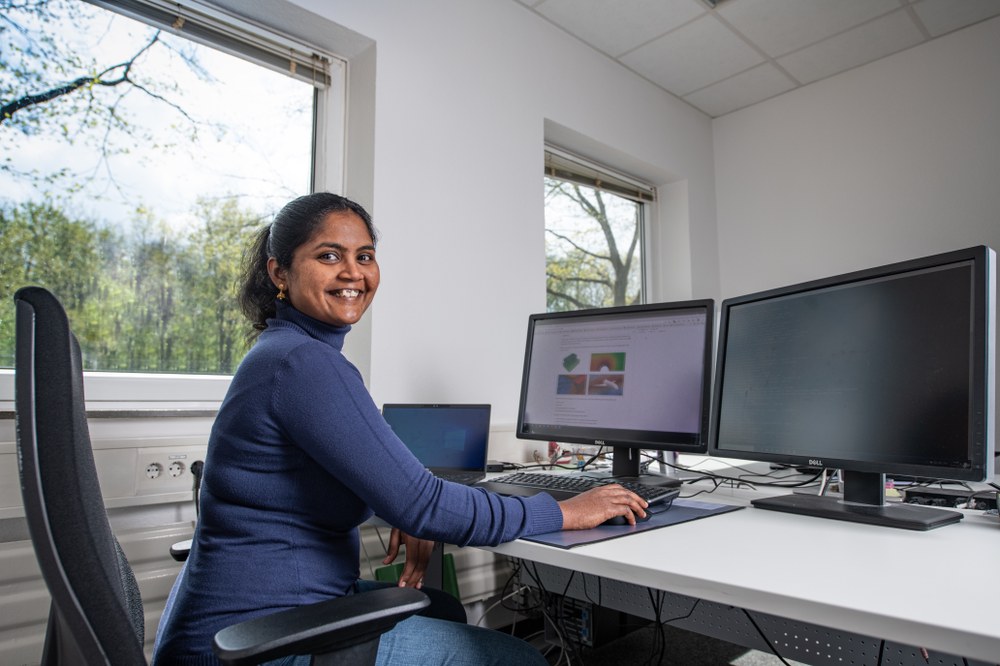
How did you get to DLR?
Prasanna: During my Masters at TU Delft in 2015, I wrote an email to the head of the thermoelectric (TE) group at DLR about my interest to work as intern on the topic as I was interested in energy topics. The head responded very positively and that was very encouraging for me, from then on, I never looked back. This research experience defined the rest of my life. I felt like I finally found the place where I belong, research.
"Even though I was just an intern, my ideas and work were very much respected like any other scientific employee and the environment was very friendly"
Even though I was just an intern, my ideas and work were very much respected like any other scientific employee and the environment was very friendly. I liked this so much that I took the opportunity when I was invited again to DLR for my PhD on the same topic in 2017. After my PhD, I wanted to improve my computational skills and therefore I moved to the Institute of Software Technology as a post doc.
How do you experience the collaboration and diversity in your team?
Prasanna: During my PhD, we had an exceptionally diverse international team - 7 PhDs from 6 different nationalities and other postdocs/interns/students from furthermore countries working with our German group leader. This was a unique opportunity where we all grew together, learning, supporting each other despite the different nationalities, we were like family! (Actually, one of the main reasons I stayed back at DLR for post doc).
"This was a unique opportunity where we all grew together, learning, supporting each other despite the different nationalities"
The different perspectives added greatly to the knowledge of the group in unexpected ways, in addition to the obvious collaborations with our home country universities! We learnt not only cutting-edge science, but of ourselves and the world! to compassionately adapt, accept and appreciate each other’s uniquely beautiful and different worlds! This also enabled me to travel a lot, as each of our countries became a home for all of us.
Currently, I am the only foreigner in an all-German group. However, they adapted to me very well and made my transition quite smooth by doing all the meetings in English and providing the support I need, not only at group level, but at institute level! Can’t ask for more!
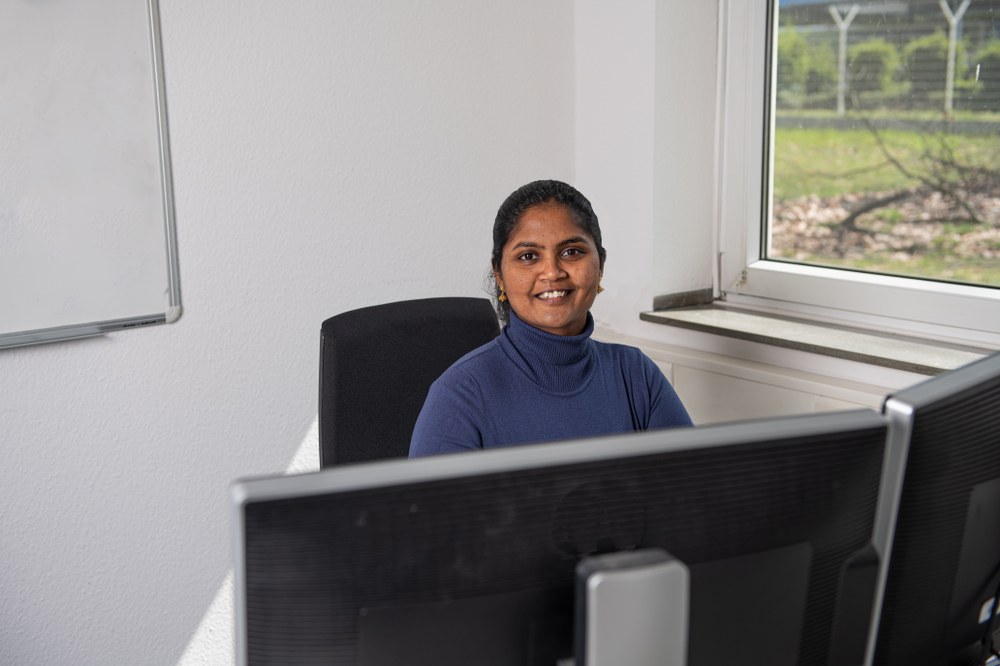
What are the highlights of your work?
Prasanna: The best thing about my work is that I get to learn a lot as the topics within my institute and among other institutes are quite diverse. I like the collaboration, flexibility, independence and the work life balance DLR provides in this regard, as well as generous support for various conferences and workshop visits to keep us up to date in the field.
Leave us a final thought.
Prasanna: At DLR, I found myself and I hope everyone with a keen interest in research, science and technology will do so as well. The best part of DLR is that it gives us the time and freedom to do so. If I, who could not afford a proper school until the age of 8 could come this far, you definitely can fly high! I am very thankful to DLR for encouraging my interests and nurturing me into what I am today.

